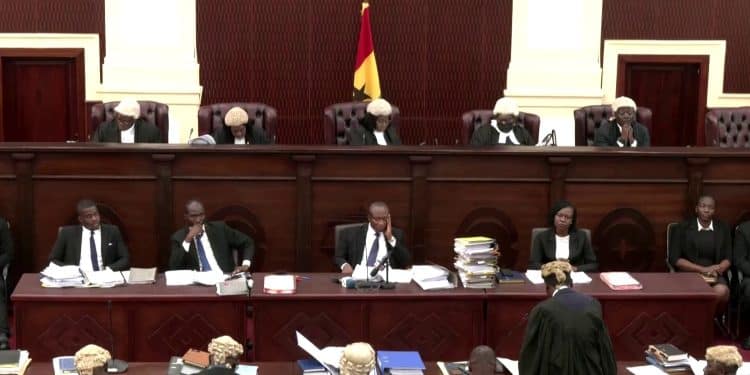The Supreme Court has upheld a lawsuit filed by Majority Leader Alexander Afenyo-Markin, overturning Speaker of the House Alban Bagbin’s decision to declare four parliamentary seats vacant.
The seven-member panel, presided over by Chief Justice Gertrude Torkornoo, ruled in favor of Afenyo-Markin by a majority vote of 5-2 on Tuesday. A further explanation of the decision would be given later, Chief Justice Torkornoo stated.
The argument centers on Speaker Bagbin’s interpretation of Ghanaian Constitutional Article 97(1)(g), which he used as justification for declaring the seats empty. Legal and political opposition to the measure was raised by Afenyo-Markin, who claimed that Bagbin had overreached himself by avoiding judicial review and ruling out the possibility of by-elections in the impacted constituencies.
In order to stop the Speaker’s decision from being implemented, the Supreme Court had earlier granted an interim injunction. Speaker Bagbin responded with a counterapplication, claiming that because parliamentary decisions deal with non-judicial issues, they are outside the purview of the judiciary.
Thaddeus Sory, Bagbin’s lawyer, said that the separation of powers tenet of the constitution is violated when judges get involved in parliamentary matters.
Chief Justice Torkornoo, however, rejected Bagbin’s application, upholding the Court’s jurisdiction to step in where parliamentary activities are thought to be in violation of the constitution.
She raised concerns about the possible disenfranchisement of people who would lose their parliamentary representation in the absence of by-elections, particularly in light of the general elections scheduled for December 7.
The Chief Justice ordered that in order to guarantee a prompt resolution, both parties file their statements of claim within seven days.
The constitutional limits of parliamentary authority and the division of powers are both seriously called into question by this case. It emphasizes the judiciary’s responsibility to protect constitutional values while managing conflicts with the independence of Parliament.






